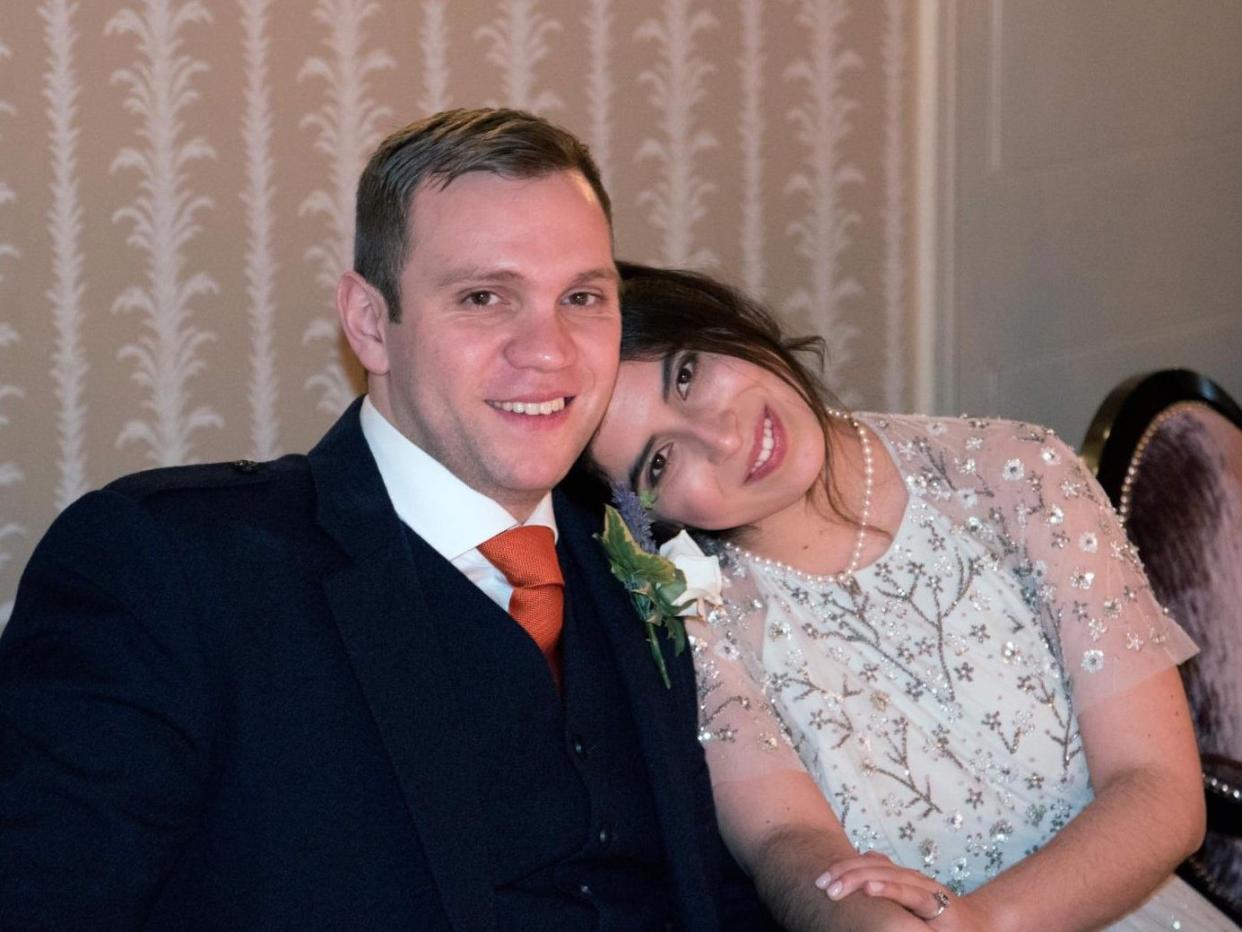Matthew Hedges: British PhD student charged with spying in the United Arab Emirates

A British university student has been charged with spying “for a foreign state” in the United Arab Emirates.
Matthew Hedges has been kept in solitary confinement for the last five months, his wife Daniela Tejada said last week.
And now the 31-year-old PhD student at Durham University, who was arrested at Dubai airport on 5 May after a two-week visit, has been charged with “spying for and on behalf of a foreign state, jeopardising the military, economy and political security of the UAE”, the country’s attorney general Dr Hamad al-Shamsi said in a statement.
Investigators had gathered evidence from his electronic devices and intelligence from UAE security agencies, he added.
Mr Hedges appeared in court in the UAE’s capital Abu Dhabi last week after a first hearing earlier this month. Ms Tejada said he was not informed of any charges.
“For nearly six months, my husband Matthew Hedges has been held in an undisclosed location in the UAE in solitary confinement with very limited access to the consulate or his family and no access to a lawyer until last week,” she said in a statement after Dr Shamsi’s announcement. “Information about his case, why he was being held and on what charges has been very difficult to attain and verify. This has been incredibly stressful and emotionally draining.”
She added that the charges are “false and unsubstantiated, as is the purported evidence to support them”, before urging the British government to publicly state his innocence.
“I no longer know what to do to get Matt out of prison in the UAE,” she said. “I am calling on the UK government to clarify publicly that Matt is innocent of the charges and that there have been many falsehoods said about him. It is the duty of the Foreign and Commonwealth Office to protect their citizens abroad. This horrifying situation has been going on for far too long.”
Ms Tejada said her husband only met his legal representative for the first time at court last week.
She said: “The entire hearing was in Arabic, with only the questions directed at Matt being translated into English. It has now been confirmed to us that Matt was told he was being charged with gathering information and sharing it with a foreign agency – the UK government.”
The case will be back before the court on October 24 to allow him to prepare his defence.
She said: “The prosecution has therefore had over five months to come up with a case for trial and Matt’s court-appointed lawyer has been given two weeks with no further access to Matt. To call this a fair judicial process is, to say the least, highly inaccurate. Matt has never been allowed to speak about his case with anyone.
“He was never given the opportunity to look for a lawyer to represent him, especially as it was not known what he needed to be represented for. The charges against Matt are false and unsubstantiated, as is the purported evidence to support them. Matt continues to be denied appropriate medical care for his mental health and remains in solitary confinement.”
Amnesty International said Mr Hedges must be released if the charge of spying relates only to his academic research.
“Matthew wouldn’t be the first person to be arrested in the UAE on baseless grounds, to be detained for a long period without access to a lawyer, and to be made to ’confess‘”, said Polly Truscott, Amnesty International UK’s Foreign Affairs expert.
“If he’s been charged with espionage simply for having conducted academic research into the country’s security services, he should be released immediately. The authorities should also withdraw all the charges against him.
She added: “We’re also calling on the UK government to step up its support for Matthew. He and his family need to know that the UK is doing its utmost to ensure that his basic rights to humane treatment and fair legal proceedings are being guaranteed.”
Radha Stirling from Detained in Dubai, a rights group which monitors and lobbies for foreigners unfairly held in the UAE, said the group was calling on all universities to suspend any academic travel to the Emirates.
“UAE is notorious for forced confessions and unfair trials with zero tolerance to free speech or academic publications that may be considered defamatory to the regime,” she said.
“We are writing to relevant universities to suggest the suspension of any research trips to the Emirates, as well as to corporations and investors. While the UAE continue to feel at liberty to persecute and detain British nationals, it can not be considered a safe country to visit or do business in."
Joe Odell, from the International Campaign for Freedom in the UAE, said Mr Hedges’ case “should provide a serious warning to anybody wishing to conduct academic fieldwork in the UAE.
“Clearly, the Emirati regime’s decade-long crackdown on freedom of speech is now at serious odds with core academic values and freedoms. If allegations against Matthew are based solely on the subject area of his thesis, the UK government must urgently rethink its educational links with the country.”
Durham University’s website states that Mr Hedges is a doctoral student in the school of government and international affairs, whose research interests include civil-military relations, political economy and tribalism.
Last year, he co-authored an article in an academic journal on the Muslim Brotherhood political organisation and the Gulf Cooperation Council, of which the UAE is a member.
The UAE is a tourism and trade hub for the Middle East, but tolerates little public criticism of its monarchy or policies and is opposed to the Islamist ideology of the Brotherhood.
The Independent has contacted the British Foreign Office for comment.


